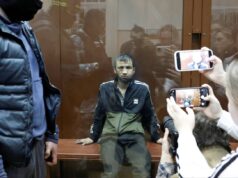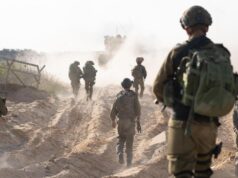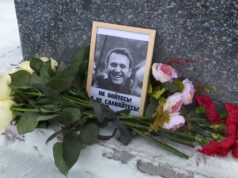As of early 2014, the terrorist threats against Russia and its counterterrorism measures will be in the spotlight, propelled by the April 15, 2013 Boston Marathon bombings that were perpetrated by two brothers of ethnic Chechen origin (one of whom was reportedly monitored by Russia’s security services), as well as the preparations for the February Sochi Winter Olympics. The primary terrorist threat is presented by the Russian Federation’s Islamist insurgents, who are organized into several groups, loosely allied with al Qaeda’s global jihad. In their most immediate threat, these Islamist militants are intent on exploiting the worldwide media attention that will be associated with the sporting events, which are located close to the North Caucasus, several hundred miles from the Republic of Dagestan, where they are mounting an insurgency to establish an Islamic state in that region. In response, Russia is boosting its counterterrorism measures in the North Caucasus republics, as well as in other parts of the country.
Terrorist Threats
Russia’s primary terrorist threats originate in the turbulent North Caucasus region’s republics of Chechnya, Dagestan, Ingushetia, and Kabardino-Balkariya, where for the past three decades extremist ethno-nationalist and Islamist militants have been waging an insurgency against Russian rule—which they regard as an occupying force and which they seek to replace with a Taliban-style Islamist regime. One of the insurgents’ tactics, for instance, is to assassinate moderate Islamist religious figures in an attempt to replace them with those who adhere to a stricter form of Salafist Islam.
Russia has confronted several categories of terrorism since the times of the Russian Empire, ranging from the 19th century’s revolutionary anarchists to today’s secessionist Islamic extremist ethno-nationalists, particularly those in the North Caucasus seeking to liberate the North Caucasus from continued Russian presence. This represents a reversal of terrorist threats for Russia because at the height of the Cold War the former Soviet Union (and its Eastern European allies, such as East Germany, as well as Cuba) was a major statesponsor of terrorism, with its security services providing active support to Palestinian, Armenian, and South American terrorist groups.
In recent times, significant North Caucasus-originated terrorist incidents against Russia have included the following:
-
In September 1999 Chechen insurgents attacked apartment buildings in Moscow, killing some 200 people and injuring several hundred. In retaliation, Russian troops invaded Chechnya.
-
On October 23, 2002, Chechen insurgents attacked the crowded Dubrovka Theater in Moscow. An estimated 129 people were killed during the rescue attempt by the Russian security forces.
-
On December 27, 2002, Chechen suicide bombers attacked the Chechen administration complex in Groznyy, killing 78 people and injuring 150.
-
Between February and August 2004, a series of suicide bombings by North Caucasus insurgents in the Moscow subway killed an estimated 80 people.
-
On August 24, 2004, Chechen and Ingush insurgents attacked Russian interior forces in Nazran, Ingushetia, killing 80 troops, while on the same day two Russian passenger aircraft were blown up almost simultaneously, killing 90 people.
-
On September 1-3, 2004, Chechen and Ingush insurgents attacked a school in Beslan, North Ossetia, holding more than 1,100 people hostage. Russia’s rescue operation resulted in more than 300 deaths, including 186 children.
-
On November 27, 2009, Chechen insurgents bombed a high-speed Moscow-to-St. Petersburg train, killing 26 people, with 100 injured.
-
On March 29, 2010, Chechen terrorists conducted a double suicide bombing of the Moscow subway, killing 40 and injuring more than 100.
-
On Jan. 24, 2011, a Chechen terrorist conducted a suicide bombing at the Domodedovo airport international arrivals hall, killing more than 36 people and injuring around 180.
-
In mid-September 2013, three Russian police officers were killed and five wounded by a suicide bomber who detonated a bomb in a car outside a police station in Chechnya.
-
On October 21, 2013, 30-year-old Naida Asiyalova carried out a suicide bombing of a bus near the southern city of Volgograd that killed six people and injured 30. Asiyalova (also known as ‘Amaturahman’), a Dagestani native, was the wife of Dmitry Sokolov, 21 years old, an ethnic Russian (whom she was responsible for converting to radical Islam). Both were members of a North Caucasus Islamist militant group, for whom Sokolov (also known as ‘Abdul Jabbar’) had served as one of their explosives experts, including building the suicide vest for his wife. Sokolov, who had gone into hiding, was suspected by Russian security services of making explosives that were used in several attacks in the Dagestani city of Makhachkala in early 2013.
Within the largely Muslim North Caucasus region, the Islamist insurgency has taken on a global jihadist nature, with al Qeida-affiliated groups providing funding, fighters, and materiel to the Chechen separatists. This explains how the Chechen-American Tsarnaev brothers (and, reportedly, their mother as well) allegedly became adherents of global Salafist militancy. Threats by these Islamist militants are expected to continue in early 2014, as demonstrated by a video message posted online in early July 2013 by Doku Umarov, the Chechen-born leader (and “Emir”) of the Caucasus Emirate (also known as the Caucasian Emirate), the self-proclaimed virtual state “successor” to the Chechen Republic. The Caucasus Emirate has been waging the insurgency against the Russian Federation, declaring that it is the duty of Muslims in the North Caucasus region to attack the Winter Olympics in Sochi. In the video message, Umarov declared that “They [Russia] plan to hold the Olympics on the bones of our ancestors, on the bones of many, many dead Muslims, buried on the territory of our land on the Black Sea, and we as Mujahideen are obliged to not permit that, using any methods allowed us by the almighty Allah.”
The Caucasus Emirate’s military branch, known as the Caucasian Front organization, has been designated by the Russian and United States governments as a terrorist organization.
Assessing Russia’s Counterterrorism Campaign
As demonstrated by the previous section, terrorist attacks by Islamist militants are being waged on a frequent basis against Russian and locally-administered forces. In response, the Russian government has responded with a spectrum of what are considered harsh (but necessary) counterterrorism measures by its military, intelligence, judicial, and law enforcement agencies.
Russia’s ineffectual response to the 2004 Beslan school siege, with its special forces incurring heavy casualties, exposed significant deficiencies in its counterterrorism capability at the time, especially in areas such as incident command, intelligence management, and disseminating public information about such events. This led to an overhaul of its counterterrorism-related security and law-enforcement agencies, including establishing new counterterrorism coordinating bodies. These changes were codified in March 2006 into “The Law on Counteraction to Terrorism”, which replaced the previous 1998 version. In accordance with the law, the Federal Security Service (FSB), Russia’s intelligence service (and successor to the KGB) serves as the chief agency to combat terrorism, with a new National Antiterrorist Committee (NAK)—comparable to the American National Counterterrorism Center (NCTC)—established as the top coordinating body. The NAK is tasked with coordinating the counterterrorism policies and operations of 17 federal security agencies, with additional regional counterterrorism committees carrying out its functions in the country’s administrative regions.
Like other nations’ counterterrorism agencies, the NAK attributes success in countering terrorism to three elements: preventing terrorist attacks, arresting suspected terrorists, and minimizing the damage from terrorist incidents—all of which are driven by efficient coordination between intelligence and law enforcement agencies. In 2013, Alexander Bortnikov, the FSB’s Director, served as the NAK’s Chairman.
Complementing the FSB, the Ministry of Internal Affairs (MVD) also employs counterterrorism units, as well as units tasked to counter extremism, a task previously performed by the FSB.
As an example of how these counterterrorist forces operate to keep Islamist militants on the defensive as Russia prepares to ensure safety for the Sochi Olympics, towns in the Caucusus considered hotbeds of Islamist militancy have been placed under what is termed a “KTO regime” (the Russian initials for a counterterrorism operation). This permits security forces to set up checkpoints leading into a town, conduct random searches, impose curfews and detain any foreigners who do not carry a special visitor’s permit.
Like other governments that find themselves forced to engage in targeted killings of the leaders of its terrorist adversaries, Russian counterterrorist forces also attempt to target the leaders of the Islamist insurgency being waged against it in the volatile Caucasus region. Although exact numbers are unavailable, several leaders of the Islamist insurgency have been killed. This included the killing in early 2012 of 35-year-old Dzhamaleil Mutaliyev, one of the leaders of the Caucasus Emirate, who was in charge of organizing several suicide bombing attacks. Mutaliyev was reportedly a close ally of Umarov, as well as of Shamil Basayev. In mid-2006, Russian forces also reportedly killed Basayev, the Islamist terrorist leader responsible for organizing the 2004 Beslan school massacre. In March 2012, Russian security forces killed Alim Zankishiyev (known as “Ubaida”), a leader of the Islamic insurgency in the Republic of Kabardino-Balkaria, a region of the North Caucasus.
In another measure to prepare to safeguard the Sochi Olympics, the FSB conducted several anti-terrorist exercises in the Krasnodar Territory area, including Sochi, to train law-enforcement agencies and local governments in conducting joint responses to potential terrorist incidents.
Like other counterterrorism organizations, Russian security agencies also monitor extremist websites to investigate their agendas, key players, and possible targeting. With some of these websites posting their material outside Russian borders, these are monitored, as well.
In a move to bolster its anti-terrorism legal measures, in early November 2013, a series of stricter anti-terrorism laws were implemented by the Russian government. These would provide prison terms of up to 10 years for anyone undergoing training “aimed at carrying out terrorist activity,” as well as compel the relatives of Islamist militants who engage in terrorism to compensate the government for any damage they cause. The law also permits the government to seize property of relatives as well as “close acquaintances” of suspected militants if they refuse to provide documents proving their legal ownership.
Conclusion
The bombing of the Boston Marathon by Chechen-American extremists demonstrated that the terrorist threats against Russia also affect Western countries that have sizeable Chechen and North Caucasus diasporas. To prevent such attacks from recurring, it is likely that Russian-Western cooperation in counterterrorism will continue to expand, with frequently held working group meetings and other forms of intelligence-related exchanges, now that the involvement of global Salafist jihadism in the North Caucasus’s ethno-nationalist secessionist movements has become a major concern for Western counterterrorism planners.
The North Caucasus-based terrorist threats against Russia are likely to intensify in preparation for the Sochi Winter Olympics, scheduled for February 2014. These Islamist terrorists will seek to exploit the extensive worldwide media attention associated with such events, which are located close to the North Caucasus. In response, Russia’s security services will be bolstering and tightening their counterterrorism measures in the North Caucasus republics and the regions where the Winter Olympics will be played, as well as in other parts of the country.
Dr. Joshua Sinai is a Washington, DC-based consultant on terrorism and counterterrorism studies. He is the author of Active Shooter – A Handbook on Prevention (ASIS International, 2013).





